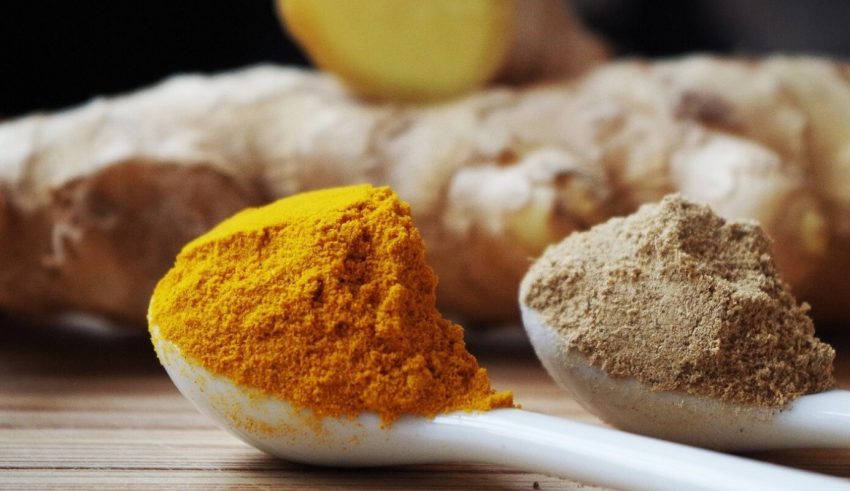
Ciku Gichohi is a spice connoisseur who is passionate and studies the art of spices and their health benefits. She believes that a healthy lifestyle is indeed a wealthy lifestyle, and so she focuses on producing fresh spice products.
Spices and herbs have been used in many ancient civilizations to mask unpleasant tastes and odours of food, and later, to keep food fresh. Most of them did not distinguish between those spices and herbs used for flavouring from those used for medicinal purposes.
The origin of alternative medicine dates back nearly 6,000 years with traditions in Asian countries such as India and China. The concepts of alternative medicine have been recognized in ancient scriptures in Egypt, India and China, as well as other ancient civilizations all over the world. Historical evidence shows that while the names of popular alternative medicines have been changed over the years, the procedure of developing these medicines and treating patients remain the same. In India, alternative medicines were known as Ayurveda / Vedic. In China, alternative medicine has been practiced for centuries and is based on Taoist philosophy. These concepts soon spread to Korea and Japan and are known as the oriental branch of alternative medicine. European alternative medicine has been practiced for nearly 2,000 years with common traditions, such as hydrotherapy, naturopathy, herbalism and homeopathy. These were effective in treating various disorders and ailments, such as mental illness.
Alternative medicine remains popular due to studies that prove that these natural remedies bring natural relief to its users. Today, there are hundreds of different spices that are used to prevent and treat medical conditions.
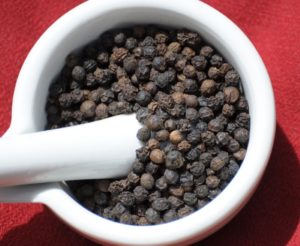
Black Pepper
A pinch of black pepper is added to almost every type of recipe imaginable. Black pepper (Piper nigrum) stimulates the taste buds in such a way that an alert is sent to the stomach to increase hydrochloric acid secretion, thereby improving digestion.
Black pepper has long been recognized as a carminative (a substance that helps prevent the formation of intestinal gas), a property likely due to its beneficial effect of stimulating hydrochloric acid production. In addition, black pepper has diaphoretic (promotes sweating), and diuretic (promotes urination) properties.
Human cancer cell proliferation was noted as being inhibited when black pepper was present, and overall, results indicated that black pepper and its constituents do exhibit anticancer activities.
British researchers believe that piperine (a compound that gives black pepper its pungency) stimulates the production of the skin’s pigment cells, called melanocytes which the scientists are using to treat viligio – a skin pigmentation disorder.
Black pepper has demonstrated impressive antioxidant and antibacterial effects – yet another way in which this wonderful seasoning promotes the health of the digestive tract. And not only does black pepper help you derive the most benefit from your food, the outer layer of the peppercorn stimulates the breakdown of fat cells, keeping you slim while giving you energy to burn.
Cinnamon
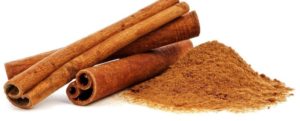
This spice has a naturally sweet taste that is devoid of sugar, making it a great addition to foods like plain yogurt as a dessert or snack and is suggested as a staple for the pantries of those with type 2 diabetes. One of the most powerful healing spices has become most famous for its ability to improve blood sugar control in people with this ailment. Studies have shown that cinnamon does have an effect on blood glucose levels in those with type 2 diabetes. Interestingly, there seems to be a different effect based on the type of cinnamon used – cassia cinnamon has shown the most promise in controlling blood glucose, while the Ceylon cinnamon is just beginning to be studied. This may be partially because Ceylon is harder to come by than cassia.
Ceylon and cassia cinnamon both contain coumarin. When coumarin is consumed in extremely high doses, it may cause some dangerous side effects. Ceylon cinnamon contains far less coumarin than cassia cinnamon. However, as a spice, it would be unusual for someone to consume large enough amounts of either type of cinnamon to cause concern.
Cinnamon also raises HDL (good) cholesterol. HDL cholesterol helps remove LDL (bad) cholesterol from the body making the seasoning capable of fighting the most persistent forms of cholesterol. Cinnamon has been shown to help neurons and improve motor function in those suffering from Alzheimer’s or Parkinson’s. These contributions can help sufferers of these two diseases continue their regular routines with far less impediment and can even help prevent blood clots, making it especially heart smart.
Many of cinnamon’s fantastic properties come from one substance, something called cinnamaldehyde, which is naturally present in cinnamon. This component is the source of the antifungal and antibacterial properties that make cinnamon such a great addition to your diet. Cinnamon’s high concentration of antioxidants can help protect the body from damage from free radicals and reduce inflammation, reducing risk of cancer and other diseases.
Ginger
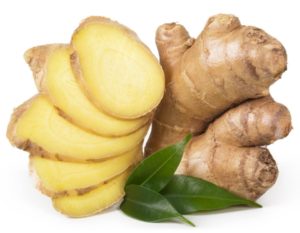
This is one of the very few ‘superfoods’ actually worthy of that term. Gingerol is the main compound in ginger, responsible for much of its medicinal properties. It has powerful anti-inflammatory and antioxidant effects with a recommended daily intake of 1-1.5 grams.
Ginger relieves nausea and vomiting after surgery, in cancer patients undergoing chemotherapy and in managing morning sickness. It appears to be effective at reducing the day-to-day progression of muscle pain and reduces exercise-induced muscle soreness. There are some studies showing ginger to be effective at reducing symptoms of osteoarthritis, which is a very common health problem.
Ginger has been shown to lower blood sugar levels and improve various heart disease risk factors in patients with type 2 diabetes. The superfood appears to speed up emptying of the stomach, which can be beneficial for people with indigestion and related stomach discomfort.
Ginger is very effective against menstrual pain when taken at the beginning of the menstrual period. Other studies suggest that it can protect against age-related damage to the brain and can improve brain function in elderly women.
Garlic
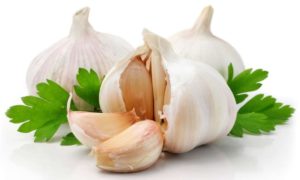
Traditionally called stinking rose, garlic is more than just a spicy, pungent addition to food. I advocate for consumption of raw garlic. The potential health benefits of garlic reside in its natural components, which include allicin, a compound that is produced when you chew and crush fresh garlic. It helps prevent atherosclerosis and reduces your risk of heart disease and stroke.
Consumption of garlic reduces blood levels of both total cholesterol and low-density lipoprotein, or ‘bad’ cholesterol. Allicin and other compounds in garlic also act on platelets, blood components involved in clot formation, to lessen the likelihood of blood clots that can lead to stroke.
According to Memorial Sloan-Kettering Cancer Center, people who consume abundant fresh garlic have a lower incidence of stomach, colorectal, prostate and uterine cancers. This may be due to the ability of compounds in garlic to stop cancer cells from dividing and cause them to die. The Cancer Center states that garlic may also boost the immune system by stimulating the activity of immune cells that recognize and destroy cancer cells.
So how do you incorporate these and other spices to your meals?
Well, there is no formula for that as we all have different senses of taste. Are you into salads? Jazz them up with spice blends like Cajun, Taco, Greek or lemon pepper that not only come packed with flavour but boost weight loss and help to dissolve stubborn weight. A blend of garlic, ginger, lemon and honey to sweeten the mixture is a perfect recipe for fighting and preventing colds and infections especially for school going children – a few tablespoons a day go a long way. Heartily sprinkle that cinnamon in your oatmeal or smoothie, then have some ginger tea mid-morning and something with cayenne pepper, garlic for lunch and black pepper, turmeric for dinner – it can certainly have an additive effect.
If you have a pre-existing medical condition, please discuss use of the spices for medical purposes before consuming them to decide if it is appropriate for your situation.

For all your spice needs, you can reach Ciku on
Mobile: +254 (0) 713298870

















